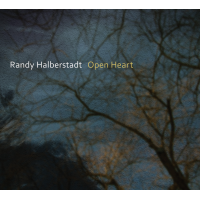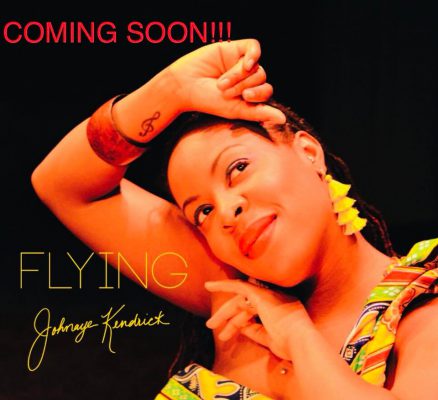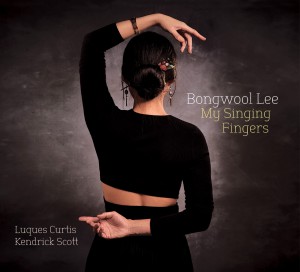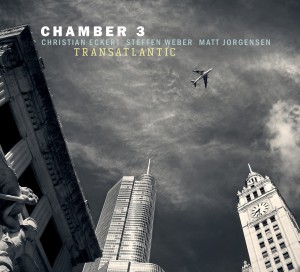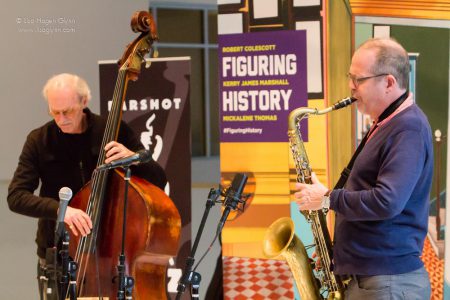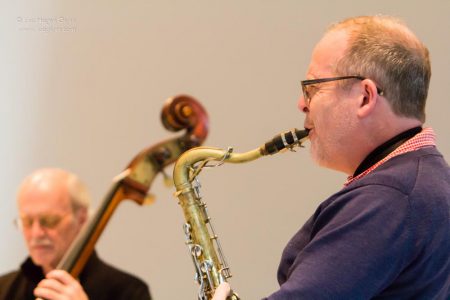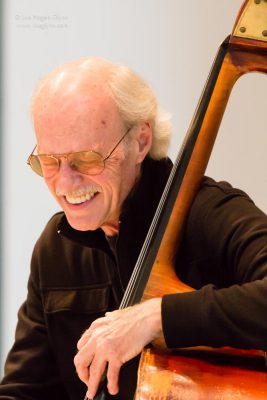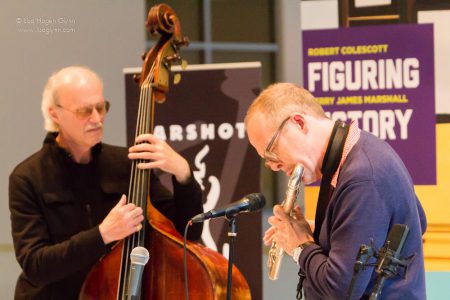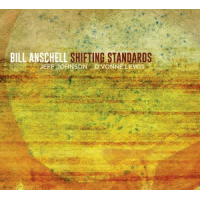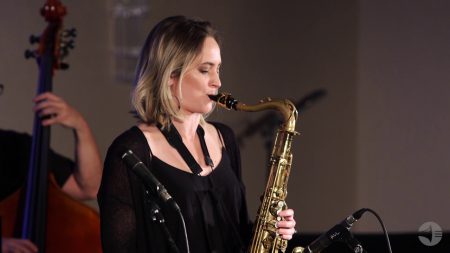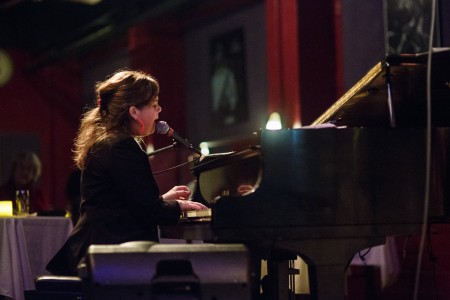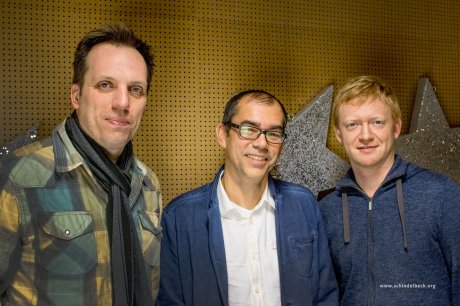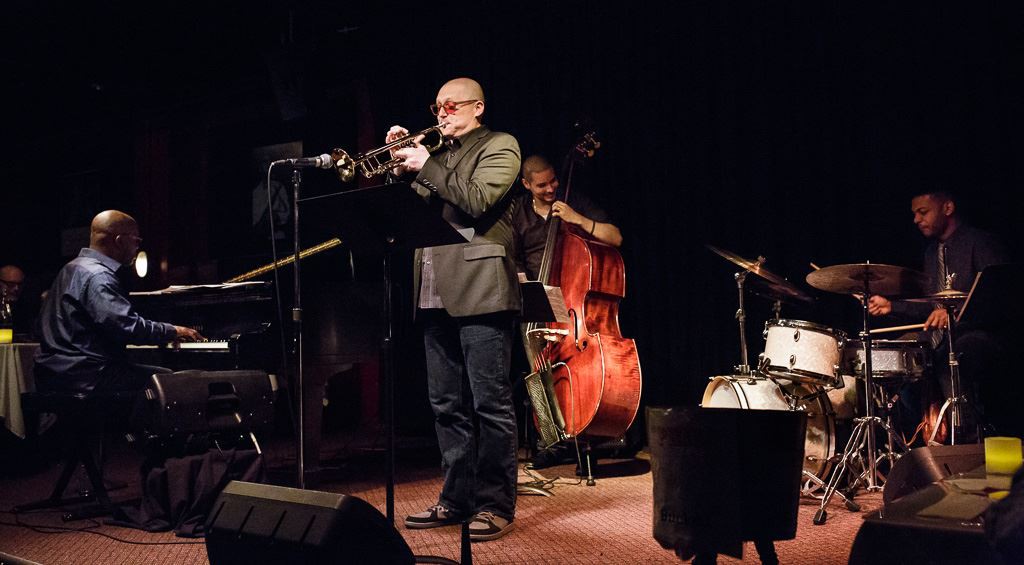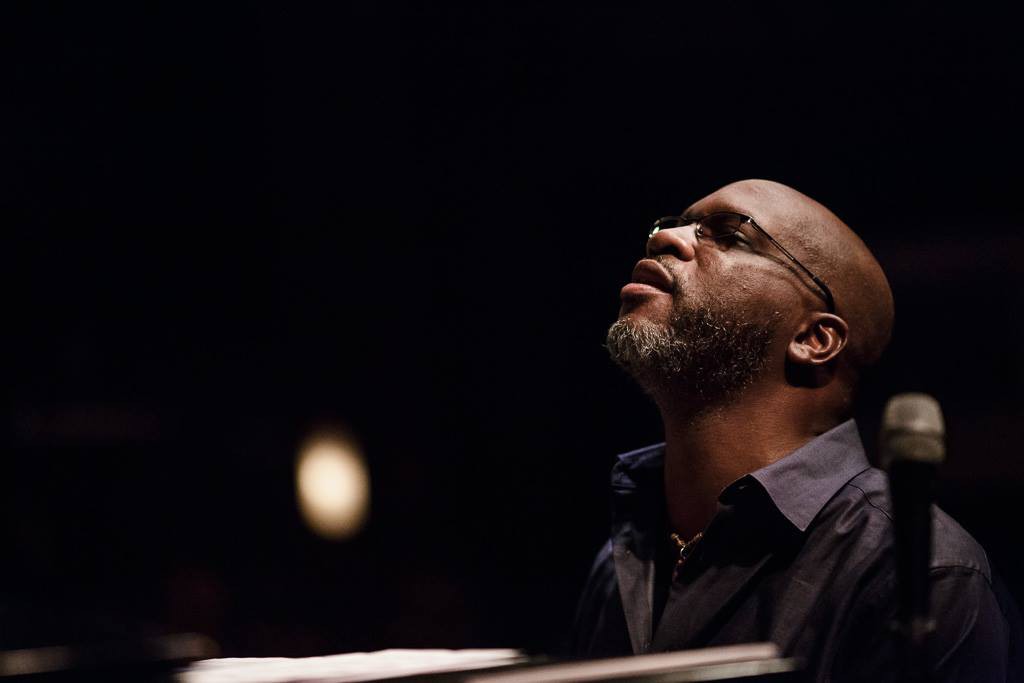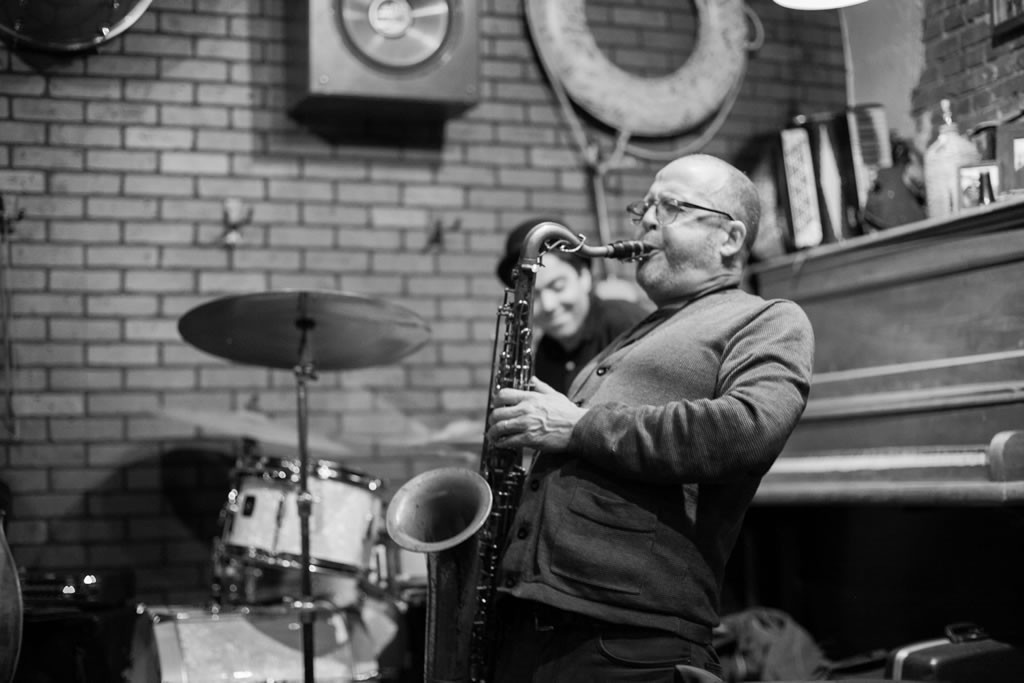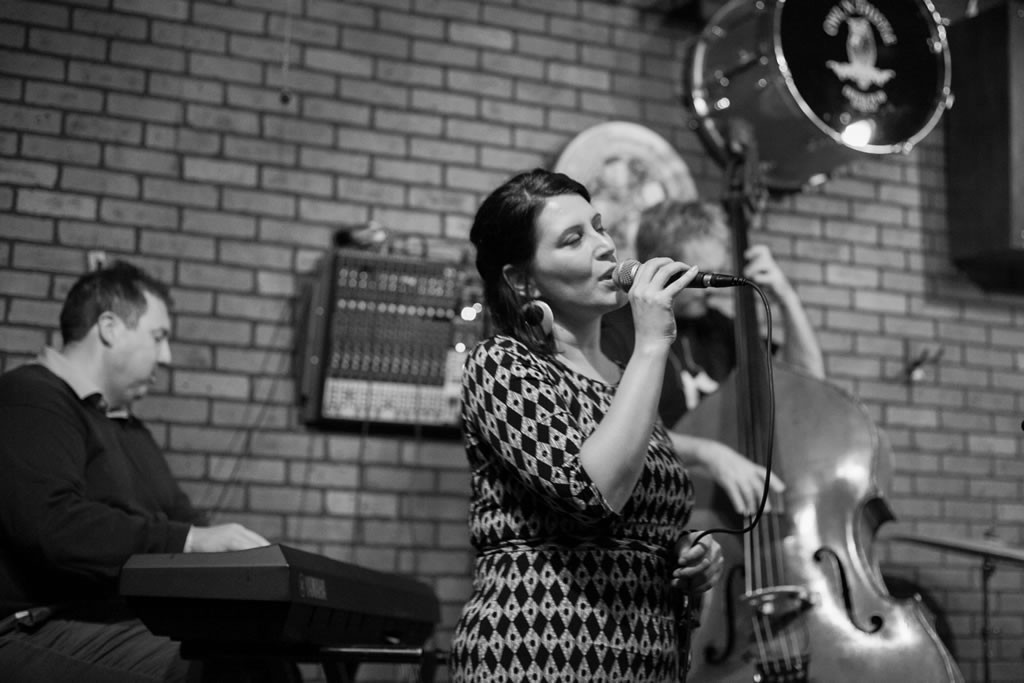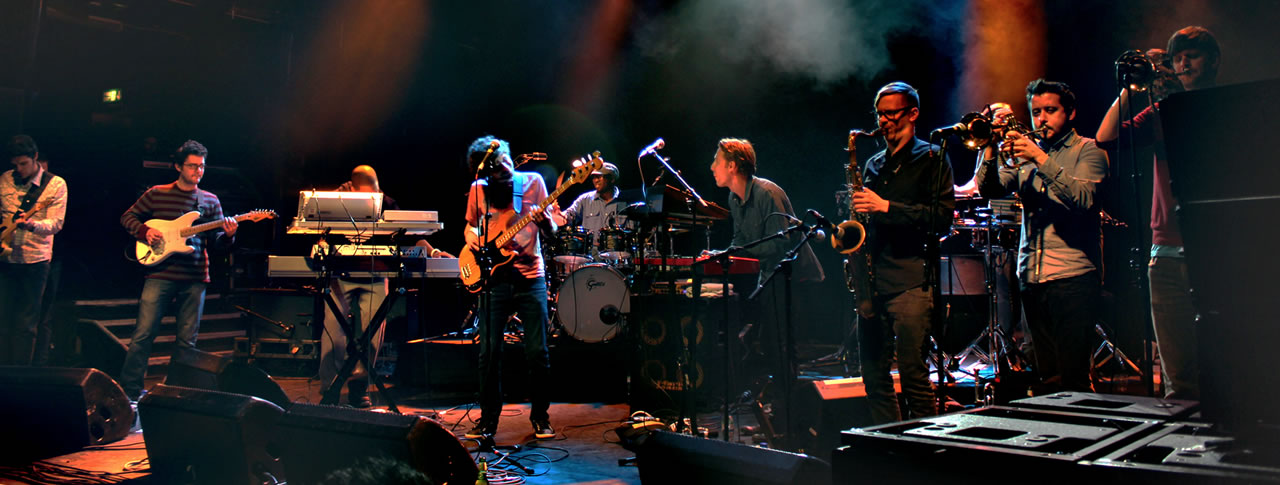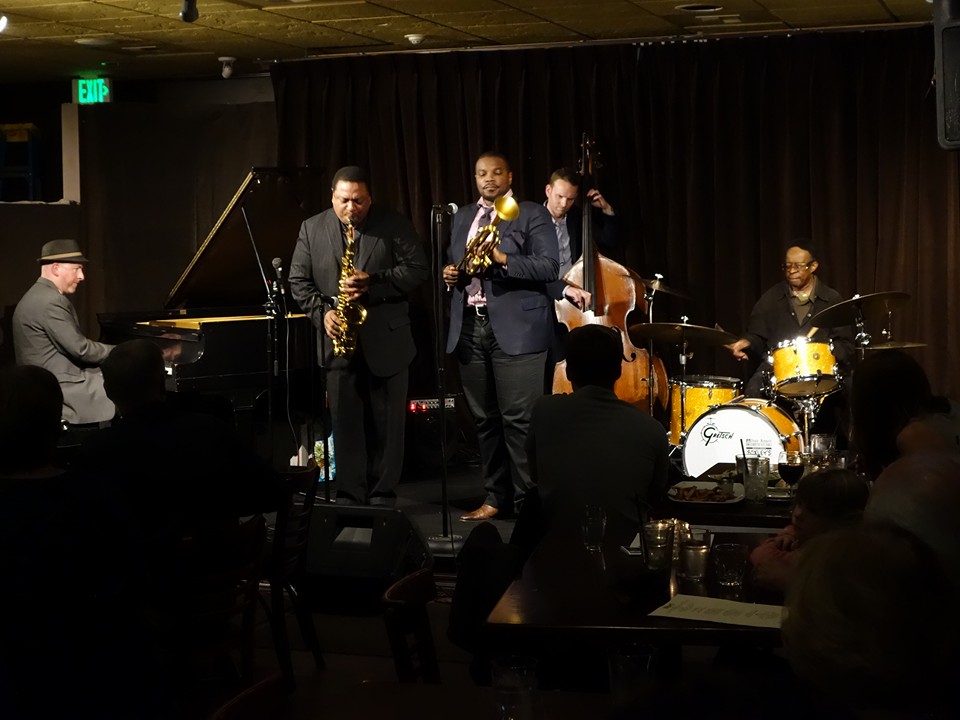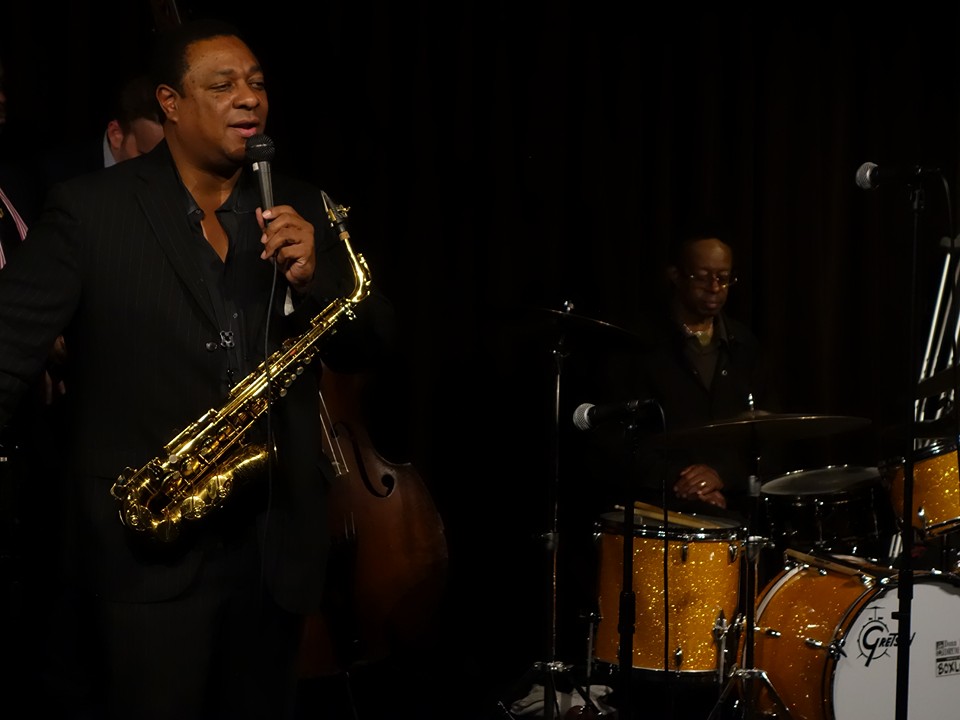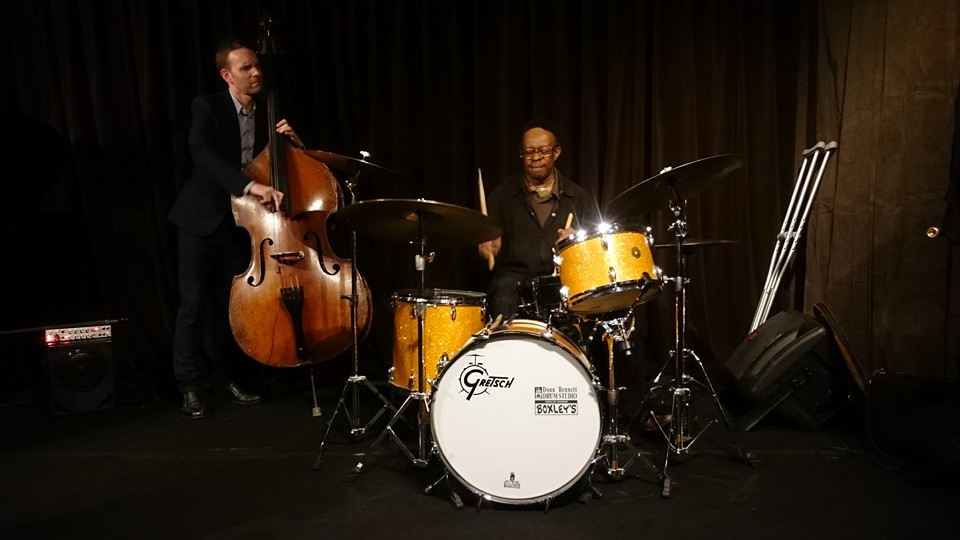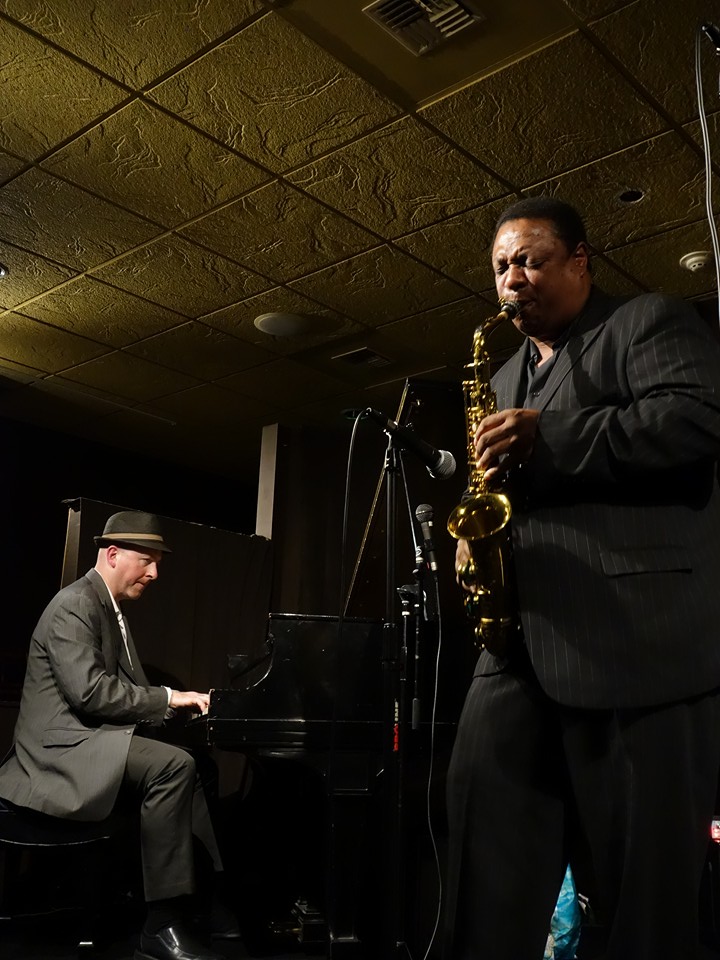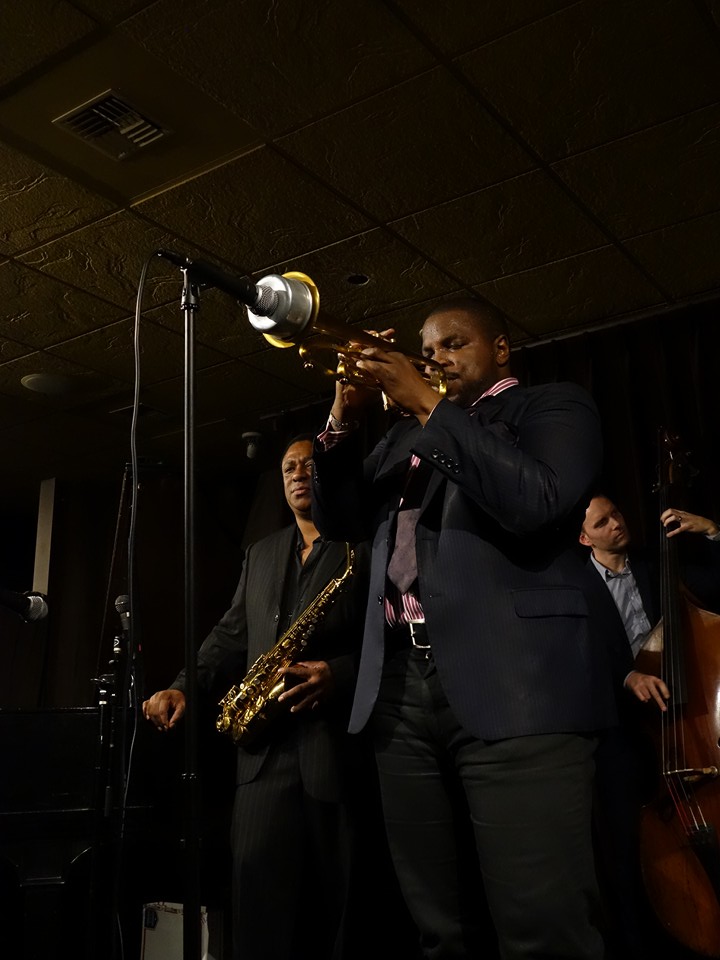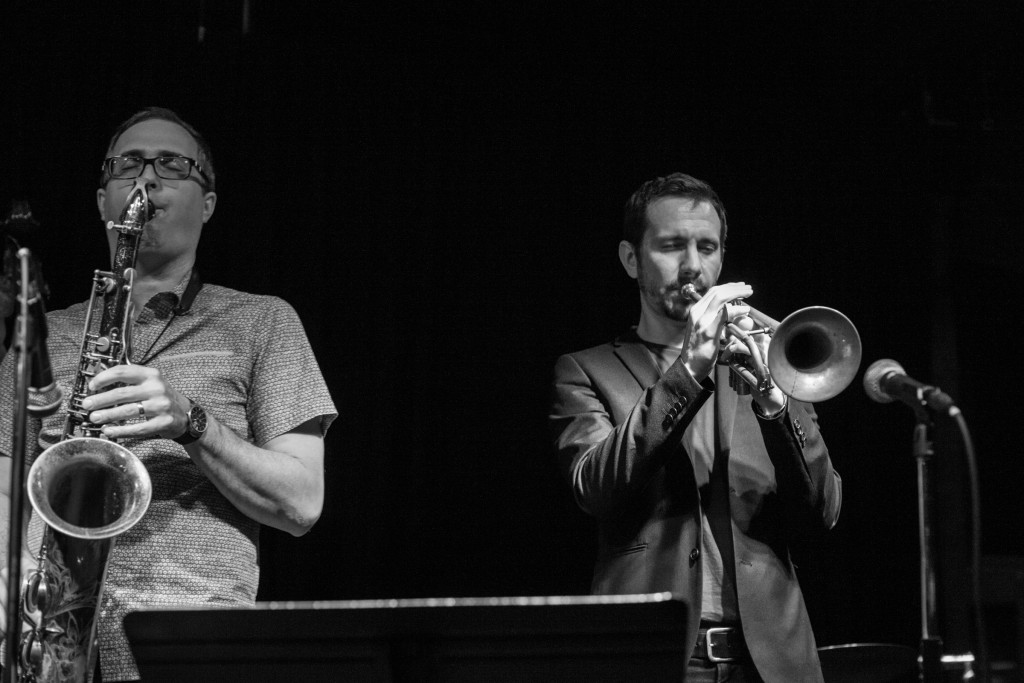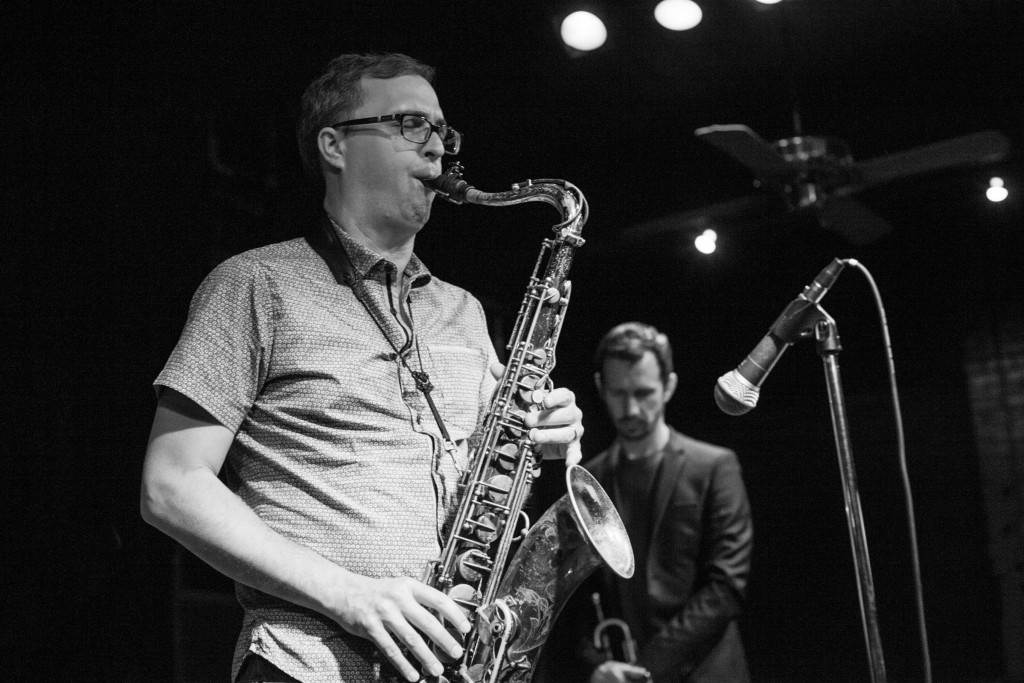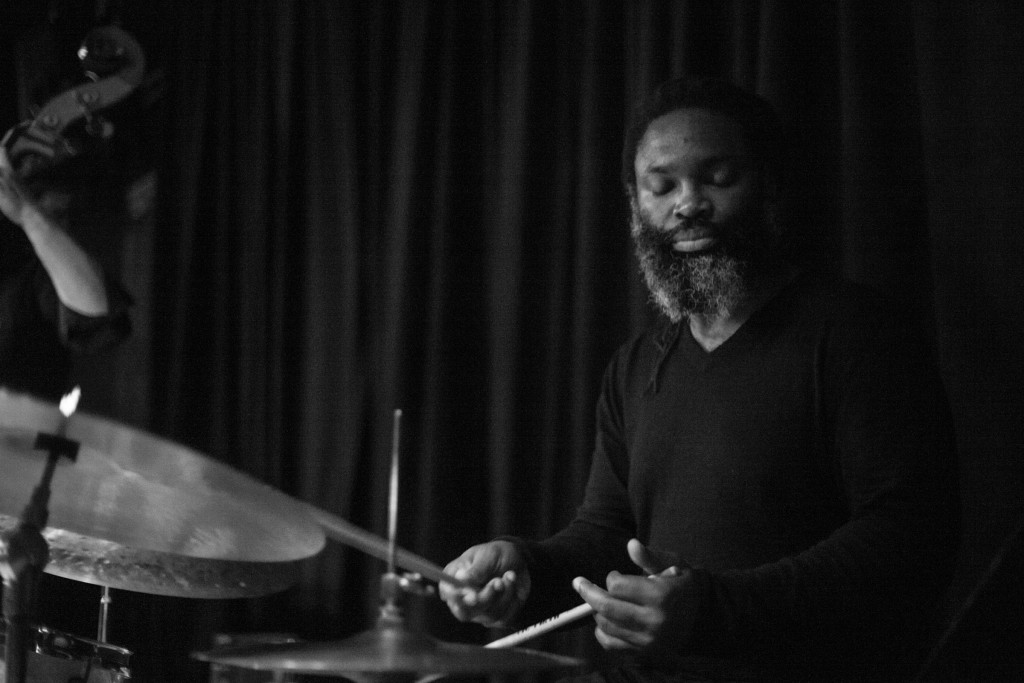
The annual John Coltrane Birthday Celebration at Tula’s has become a symbolic jazz new year of sorts. It is performed in a time of transition in the northwest, when we begin to seek a bit more shelter both without and within.
The music of Coltrane is a spiritually unifying force of nature, a gust of wind to push our humanity ever forward to each new day.
Each year, event organizer Matt Jorgensen brings in special guests to offer their interpretations of Coltrane’s art. This year saxophonist Charles Owens is our guest, arriving from Charlottesville, VA. along with New York-based bassist Ben Shapiro. The two will form a quartet with Jorgensen on drums and pianist Marc Seales. In a way, it continues a tradition that began on Jackson St., and continues to this day of welcoming great players from yonder scenes and surrounding them with the best the Seattle jazz scene has to offer.
Owens was so kind as to answer a few questions, and provide some insight as to who he is as an artist, and what we might anticipate at this year’s performances.
You spent 12 years on the scene in New York City and moved to Charlottesville VA. Talk about your reasons for the change, and how that transition has been for you musically.
The year 2002 was a big one for me. I got married, turned 30, and my wife became pregnant with our first child. I was looking for a better life for myself and my family, I was looking for some space and some quiet. I grew up in VA and my mom has some property out in the country. So we moved out there to get our footing and then shortly thereafter moved to Charlottesville. Being in VA as a musician has been beautiful! I am a big part of the scene in Cville but also in Richmond which is a short drive away. I play and record with guys in Butcher Brown like Devonne Harris (DJ Harrison) Corey Fonville, Andrew Randazzo, Morgan Burrs, and Marcus Tenney as well as guys like Kelli Strawbridge on drums Cameron Ralston (Matthew E White) on bass. Also, there’s a great bunch of cats in Richmond that are in a band called Future Prospect. I love to gig with them. Cleandre Foster, Brandon Lane, Jacob Ungerleider, Trey Sorrels. In Charlottesville, I have the pleasure of playing with guys like Dane Alderson who’s the bass player in the Yellowjackets and John D’earth who is a master trumpeter and improviser. He was really close with many people in the Brecker generation in NY. All of these people and more have indeed changed my playing. Virginia has a laid back, funky, and soulful vibe. Virginia music is greasy and sexy and hot. It’s got its own special sauce that everybody needs to experience. I treasure what its done to my saxophone playing, improvising, writing and arranging.
You are often linked stylistically to John Coltrane, Sonny Rollins, and Wayne Shorter. How do you use those voices to create and impact your own voice as a player?
Well, those men had a huge hand in creating Charles Owens the improvising saxophonist, so the voices have created, and continue to impact my sound. I don’t just study their playing but I also study the spirit in which they bring forth their truth. These men played in a way that spoke to humans through key facets of their humanity. Their music appeals to people on a visceral level because they are accessing the most truthful regions of their muse, and bringing to fruition sublime improvised musical art. I want to create at this level 100% of the time.
You are coming to Seattle to be featured at the annual John Coltrane Birthday Celebration at Tula’s Jazz Club. First off, how did this association with Seattle come to be?
I was lucky enough to attend the New School for Social Research (Jazz performance and composition) in NYC alongside the amazing Seattle drummer Matt Jorgensen and the great Seattle based bassist Ben Shapiro. Matt and I had been talking for a while about playing together again and when the Coltrane celebration came up, we all thought it would be a perfect fit and opportunity for us to make it happen. I’m so grateful! This will be my first time in Seattle and I’m thrilled.
Coltrane was a primal force that forged so many creative pathways through the music. How will you approach this performance as a saxophonist? Will it be more of a repertory approach, or will you seek more personal insights into the music?
I’ve been playing Coltrane’s music since I was a teenager. These songs are simply part of the Black American Music Canon. We will certainly choose compositions that span his career and make sure that the repertoire is varied in tempo, tone, and timbre. I will approach this music saxophonistically the same way I approach all music. I will be calm, clear and confident. I will gain my inspiration from a mix of spirituality, intellect, and passion. I will treat this and every opportunity to play music for my fellow humans as a sacred and rarified privilege. I will have an open heart and mind and proceed without fear.
With so much material to choose from, how do you go about selecting a set of music from the vast Coltrane library?
For me, it’s the compositions that have meant the most to me personally over the years and also the ones that I enjoy improvising on. But we will also rely on the tried and true method of putting a good set together which is to not have songs with a varied tempos, feels and forms. We want to produce a different mood and vibration on every song so as to make it a rich and satisfying experience for us and the audience. Luckily we have a wide range of genius material from which to choose. We will also put in a couple of songs from the American songbook that were favorites of Coltrane’s.
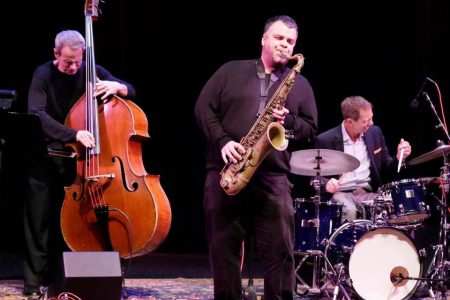
You performed “A Love Supreme” in Charlottesville last year at UVA. In preparing for, and performing this music, did it at all impact your personal view of this classic?
It had a huge impact on my personal view of the album. I actually performed the suite in Richmond two years before the Charlottesville performance. I never dreamed I would be in a place where I could convincingly perform the Suite. So when the opportunity arose I made sure to prepare thoroughly. I studied the transcriptions heavily and memorized passages that I thought were classic parts and then improvised other parts. This was his ultimate opus. He is thanking God for his life and acknowledging that to him God is the only thing he is doing anything for forever.
This is going to be your first visit to Seattle. The city is noted for its eclectic music scene. What have you learned about Seattle, and what do you anticipate encountering on the scene here?
I know little about the music scene in Seattle other than every musician I’ve played with from there has been great. Matt Jorgensen, Shawn Schlogel, and Max Holmberg.
Coltrane transitioned his sound towards the end of his life, employing what he saw as a spiritual approach, a soul cleansing series of cries and vocalized effects. Some in the audience did not receive the music in the same light in which Coltrane created and performed it. What is your personal perception of this period of Coltrane’s sound, and what impact did it have on your approach to playing?
Coltrane always pushed himself forward and never seemed to want to stay in the same place for long. This is one of the normal hallmarks of an artist/creative person. It’s really the same old story. An artist becomes popular by doing their art in a certain way. That art lives in the fans heart as sublime. Then the artist pushes themselves to create something new (again) with the same energy, focus, and attitude that they used in the past. The established fan usually reacts in 1 of 2 ways- they move forward with their artist despite the fact that things are different, or they stop and stick with what they like about the artist and pine away for “the old stuff.” This is what happened with Trane. I don’t listen to as much of his avant-garde as I do Crescent, A Love Supreme, Coltrane’s Sound etc., but I still do listen. The thing that has most influenced me from his later work is how much his tone continued to evolve, Listening to his tone on the Olatunji Concert recordings makes me feel that he had transcended the saxophone and turned it into his interstellar voice of his worship. No one has ever evoked the universal power of love through a saxophone like him. I learned a lot from the vocalized effects as well. One of my first gigs in NYC was with Reggie Workman’s ensemble at the Knitting Factory. We were playing free, free, free as a bird. Many of the things I’d heard Trane doing, I did especially on those gigs.
Jazz education has become largely institutionalized in modern times, much like classical music in the twentieth century. So many giants of the form learned through the oral tradition, with mentorship provided by the experienced players of the day. Talk about your own personal experience learning the saxophone and jazz music, and how that experience has impacted your approach as an educator.
I’ve been quite lucky to have great saxophone teachers. Ralph Lalama, Joe Lovano, Grant Sewart, Eric Alexander, Makanda McIntyre, Arnie Lawrence. I’ve never had a “big break” gig with a master. The people that I learned the most about actual improvisation though were John Coltrane, Sonny Rollins, Thelonious Monk, Bud Powell, and Charlie Parker. I learned a lot about swing from Duke Ellington and Count Basie. I also came up in NYC in the 90’s at my home club, Smalls. I met, and hung out with, listened to, and learned from just about every great jazz musician you could think of that was still around at the time. Smalls was the place where I really learned what the music should sound like, and more importantly, the attitude and ethos one needs in order to be a successful improviser, performer, bandleader, and composer. My first gig in NYC was running the Sunday jam session at the Village Gate. That’s where I first met people like Brad Mehldau, Dwayne Burno, Ben Wolfe, Leon Parker, Gonna Okegwo, Ari Roland, just to name a VERY few. I also learned a lot during my time at the New School. Some of my teachers there included Jim Hall, Buster Williams, Jimmy Cobb, Bernard Purdie, Peter Bernstein, Reggie Workman… I also was lucky enough to take some advanced jazz harmony classes with Kenny Werner. But I also never stop learning and growing and pushing myself to be better. So I woke up this morning with the same attitude towards music and saxophone that I’ve always had. How can I be better? When I educate people on the tradition of Black American Music, I am very careful to point out that the concepts that we cover are intellectual, but this music needs more than just intellectuality. The other essential ingredients are spirituality and passion.
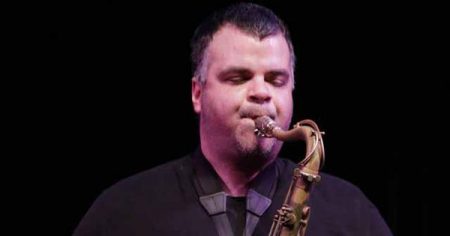
Environment and lifestyle impacts culture on all levels, including music. New York is like an incubator for new talent, and is unquestionably the living gathering place for jazz, convening sounds from all over the world. The energy and whirlwind of cultural activity drives the music and seems to give it an ardent physicality like nowhere else. Seattle is a touch more relaxed, reflecting the physical beauty and lifestyle of the Pacific Northwest. Talk about the musical environment in Charlottesville, your current residence, and how it differs from other musical scenes you have encountered.
Charlottesville has a wide variety of bands in different genres. It reminds me a lot of other scenes in other cities, just smaller. The energy is, of course, more relaxed and certainly reflects the terrain of the Blue Ridge Mountains. I love the scene here though. Being in Cville and Richmond has taught me that it’s cool to relax and not go for the “touchdown” solo every time. It’s helped me to let go of my ego and not play solos where I’m “checking boxes” i.e the out part, the fast part, the part, the altissimo part, where I trick the audience into clapping more etc… It’s taught me that it’s ok to groove and be sparse and play longer notes. That VA grease!
What projects are you currently engaged in?
I am of course busy with my trio and quartet but I also play in a wide variety of bands here in VA and NYC.
Jack Kilby and the Front Line. Drummer Jack Kilby is about to release his debut album and it’s gonna be amazing. I wrote a song for the Album titled “Love Is A Song Anyone Can Sing.” Jack liked the tune so much that he named the album after it and has taken the concept and run with it. We have a couple of release shows in October and the album is just fantastic. Allyn Johnson, Kris Monson, John D’earth, and Antonio Hart are playing on it.
I am in a band called The ATM Unit that plays every Monday at a club called Rapture here in Cville. The band is lead by Australian electric bass virtuoso Dane Alderson who is also currently in the Yellowjackets. It’s a fusion sound coming out of bands like Yellowjackets, Weather Report, Steps Ahead, etc. It is such a killer band and it’s been a fun challenge learning all the new music.
Reginald Chapman is a great bass trombonist and composer formerly with No BS Brass Band. He has just released a fantastic album called Prototype, and I will be playing his VA release shows in September.
I also play with a ton of great rock, funk, and should bands. I stay very busy with recording sessions, and I have a full studio of wonderful private saxophone, theory and improvisation students. I’m also a pianist and stay busy with solo piano work and duo work with singers.
What can we expect from Charles Owens in the near future in terms of recordings and live performances?
Well, Jack Kilby’s album is on deck next. I just recorded a live album at Smalls with the great Joel Frahm on tenor saxophone, Ari Hoenig on drums and Alexander Claffy on bass. That was released back in April. The next record I want to do will be a trio record with electric bass, drums, and saxophone. I am currently compiling repertoire and testing it out on gigs. My M.O. for recording is to gig with material/band for a year then go to the studio for one day and record it all. I just got a new horn so I will be playing a lot on it before I decide to go back to the studio again.
